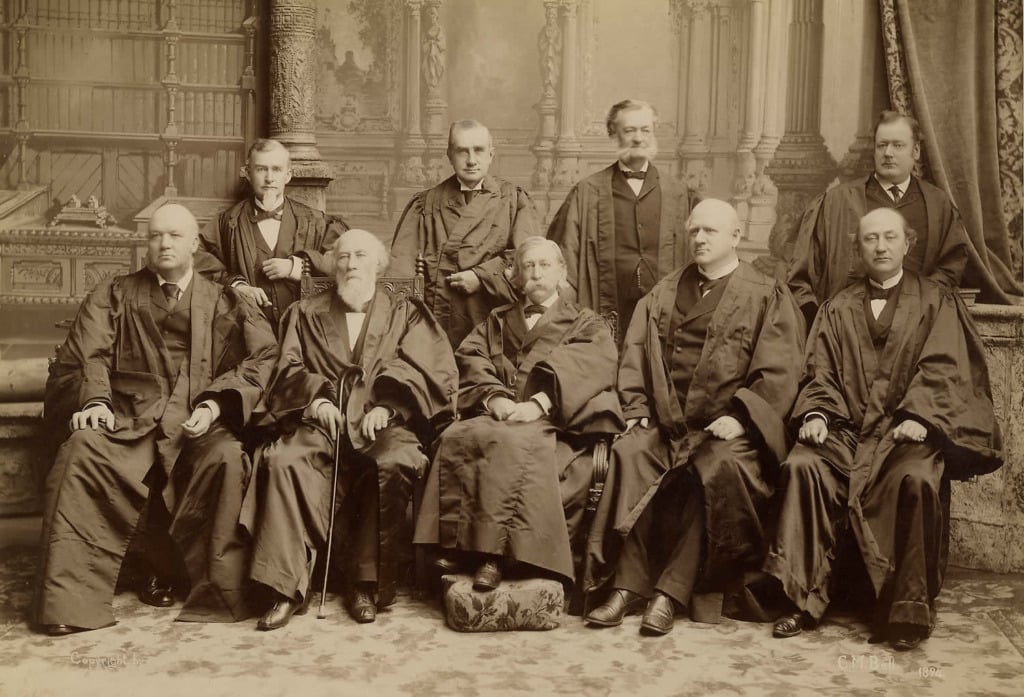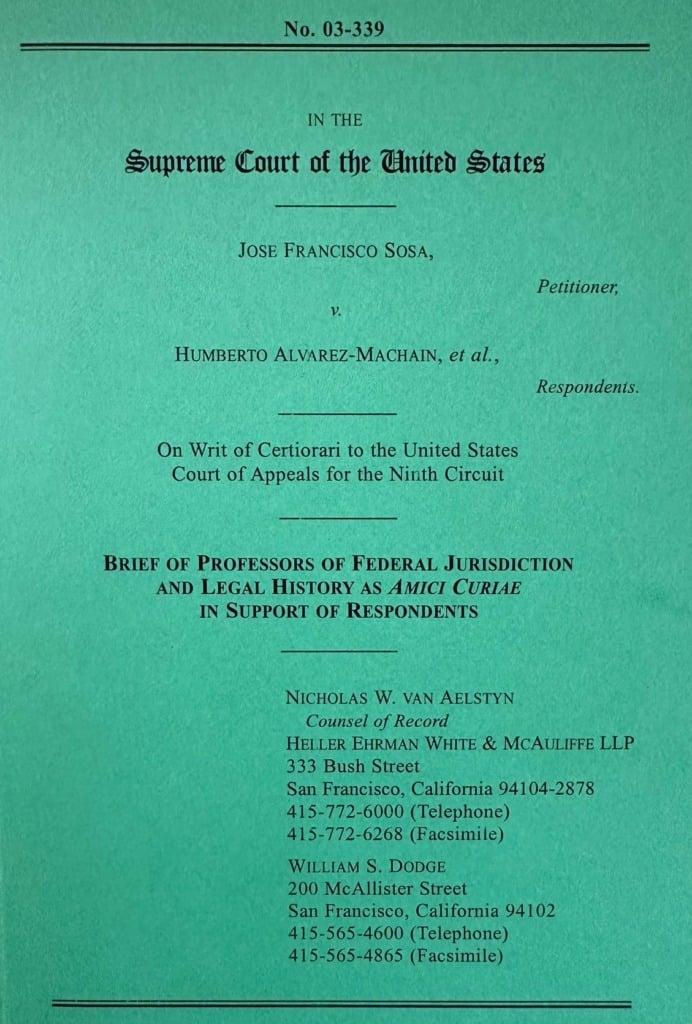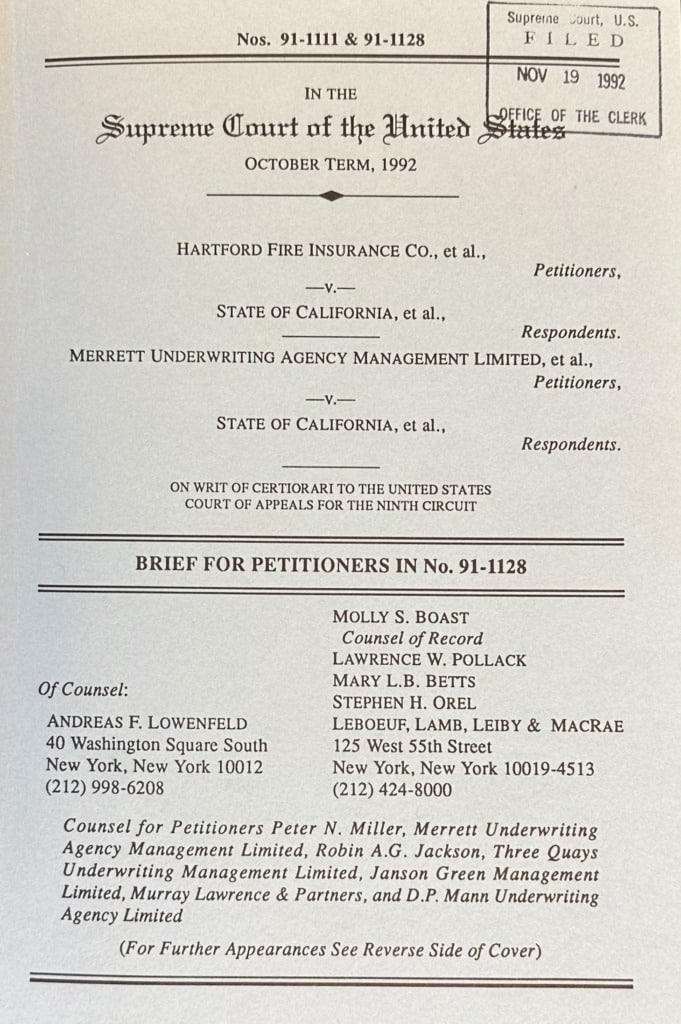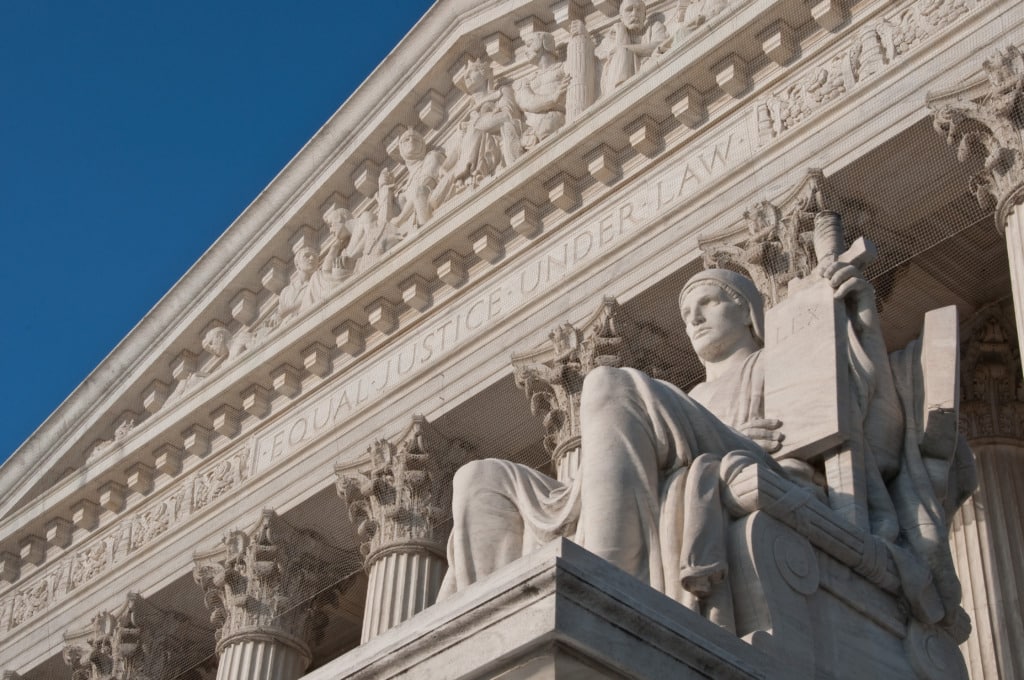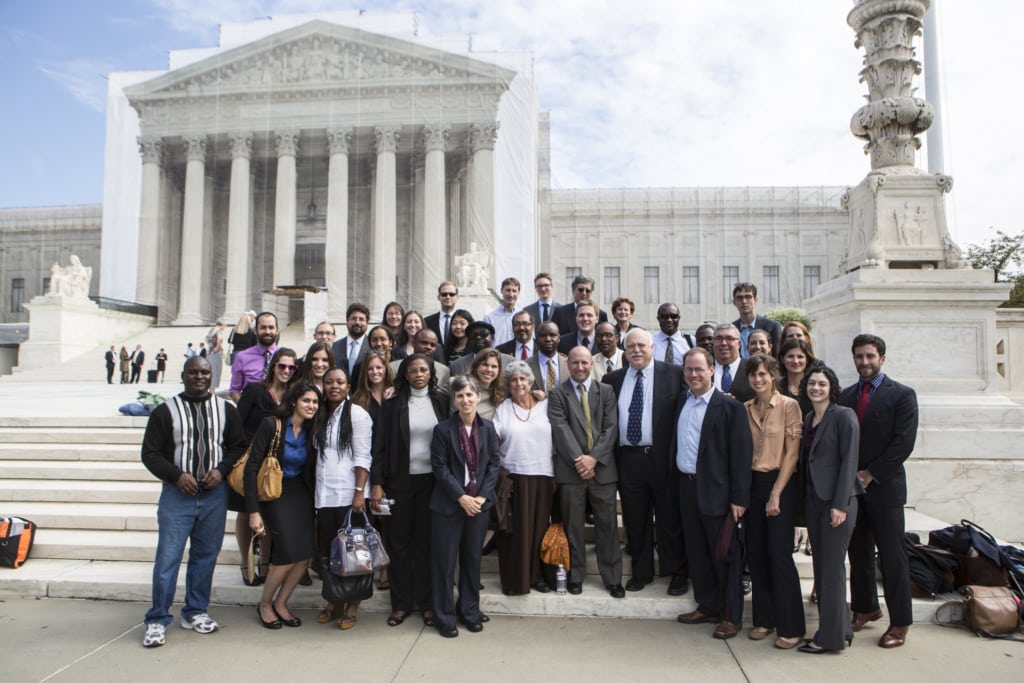Throwback Thursday: Forecasting Fuld
Nearly a decade ago, Professor Aaron Simowitz identified not only the problem presented in Fuld v. PLO (2025), but also the solution the Supreme Court ultimately adopted. This Throwback Thursday post highlights Simowitz’s article Legislating Transnational Jurisdiction (57 Va. J. Int’l L. 325), which offers important insights for those trying to make sense of Fuld’s…
Continue ReadingThrowback Thursday: Hilton v. Guyot
One hundred and thirty years ago this week, on June 3, 1895, the Supreme Court decided Hilton v. Guyot. Hilton is the seminal decision on recognizing and enforcing foreign judgments in U.S. courts. Although the federal common law rule that Hilton announced has been superseded by state law, Hilton continues to influence state rules in…
Continue ReadingThrowback Thursday: Sosa v. Alvarez-Machain
On June 29, 2004, two decades ago, the Supreme Court decided Sosa v. Alvarez-Machain, recognizing an implied cause of action under the Alien Tort Statute (ATS) for violations of human rights norms that are generally accepted and specifically defined. In this post, I look back at Sosa and discuss what has happened in ATS litigation during…
Continue ReadingThrowback Thursday: Empagran’s Complicated Legacy
Twenty years ago tomorrow, on June 14, 2004, the Supreme Court handed down its decision in F. Hoffman-La Roche Ltd. v. Empagran S.A. The majority opinion, authored by Justice Stephen Breyer, interpreted the Foreign Trade Antitrust Improvements Act of 1982 (FTAIA) to preclude the application of U.S. antitrust law to injuries in other countries. Empagran…
Continue ReadingThrowback Thursday: Eighty Years of Ex Parte Republic of Peru
Back in 1943, the Supreme Court issued its opinion in an admiralty case against the Ucayali, a Peruvian steamship. A Cuban company brought the in rem action in a federal district court in Louisiana alleging that the steamship violated a charter agreement by failing to carry a cargo of sugar from Peru to New York….
Continue ReadingThrowback Thursday: Hartford Fire Insurance Co. v. California
Thirty years ago next week, the Supreme Court addressed the extraterritorial reach of U.S. antitrust laws in Hartford Fire Insurance Co. v. California. The Court reiterated that the Sherman Act applies to anticompetitive conduct abroad that causes substantial intended effects in the United States, but it divided sharply over the role of “international comity.” Writing…
Continue ReadingThrowback Thursday: Federal Rule 44.1
For this installment of Throwback Thursday, we are going back to the year 1966. In that year, the Supreme Court adopted important changes to the Federal Rules of Civil Procedure governing class actions, amendments that have garnered substantial commentary ever since. This post addresses a less-heralded change, the introduction of Federal Rule 44.1 governing foreign…
Continue ReadingThrowback Thursday: Kiobel v. Royal Dutch Petroleum Co.
Ten years ago this week, the U.S. Supreme Court handed down its decision in Kiobel v. Royal Dutch Petroleum Co., applying the presumption against extraterritoriality to the implied cause of action for human rights violations under the Alien Tort Statute (ATS). In Kiobel, the Court began to whittle down the cause of action it had…
Continue ReadingThrowback Thursday: Professor William Casto on the Origins of the Alien Tort Statute
In the spring of 1986, Professor William Casto published an article in the Connecticut Law Review entitled The Federal Courts’ Protective Jurisdiction Over Torts Committed in Violation of the Law of Nations. Casto’s article was the first to explore the origins of the Alien Tort Statute (ATS) in detail, and despite the many law reviewpages…
Continue Reading
